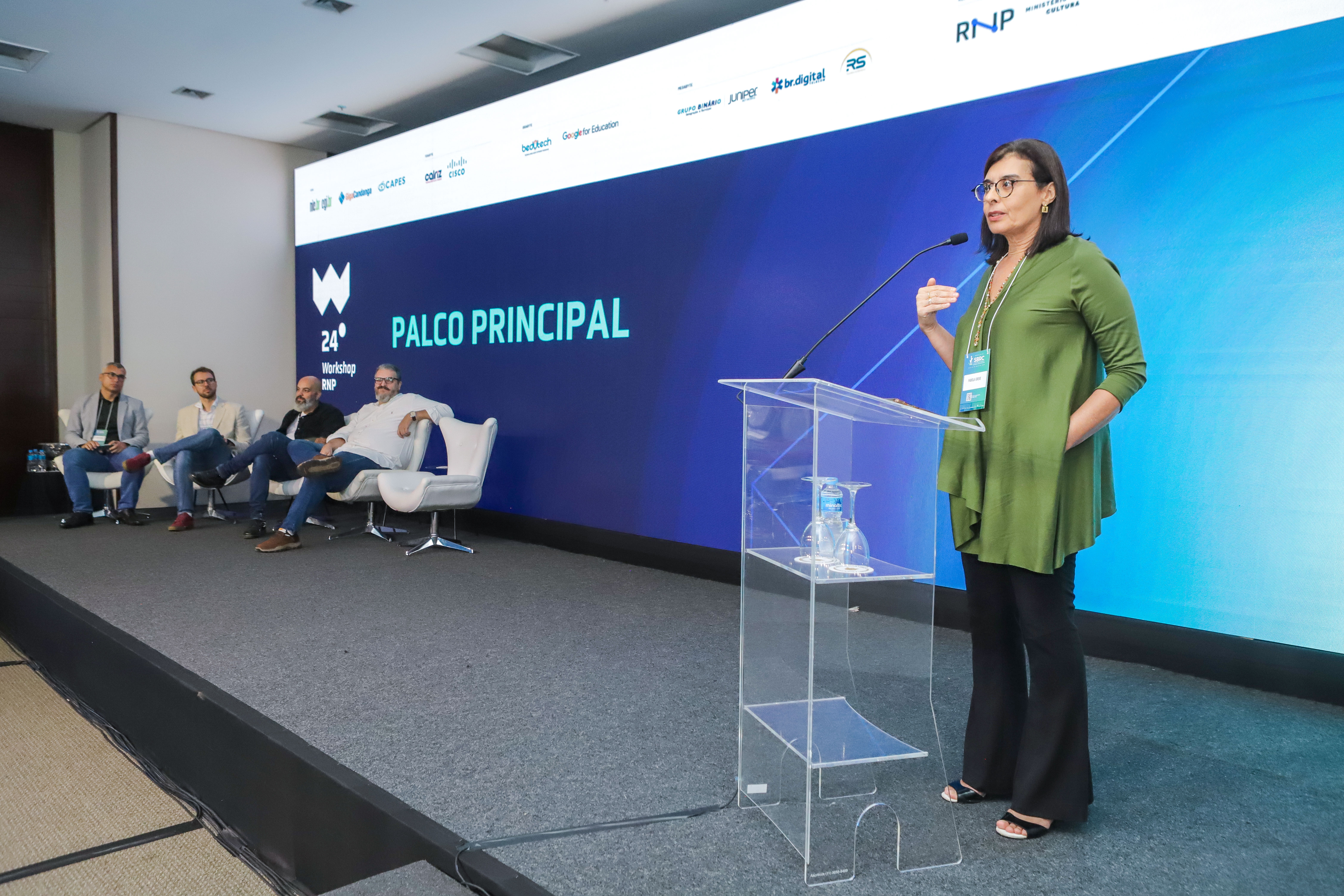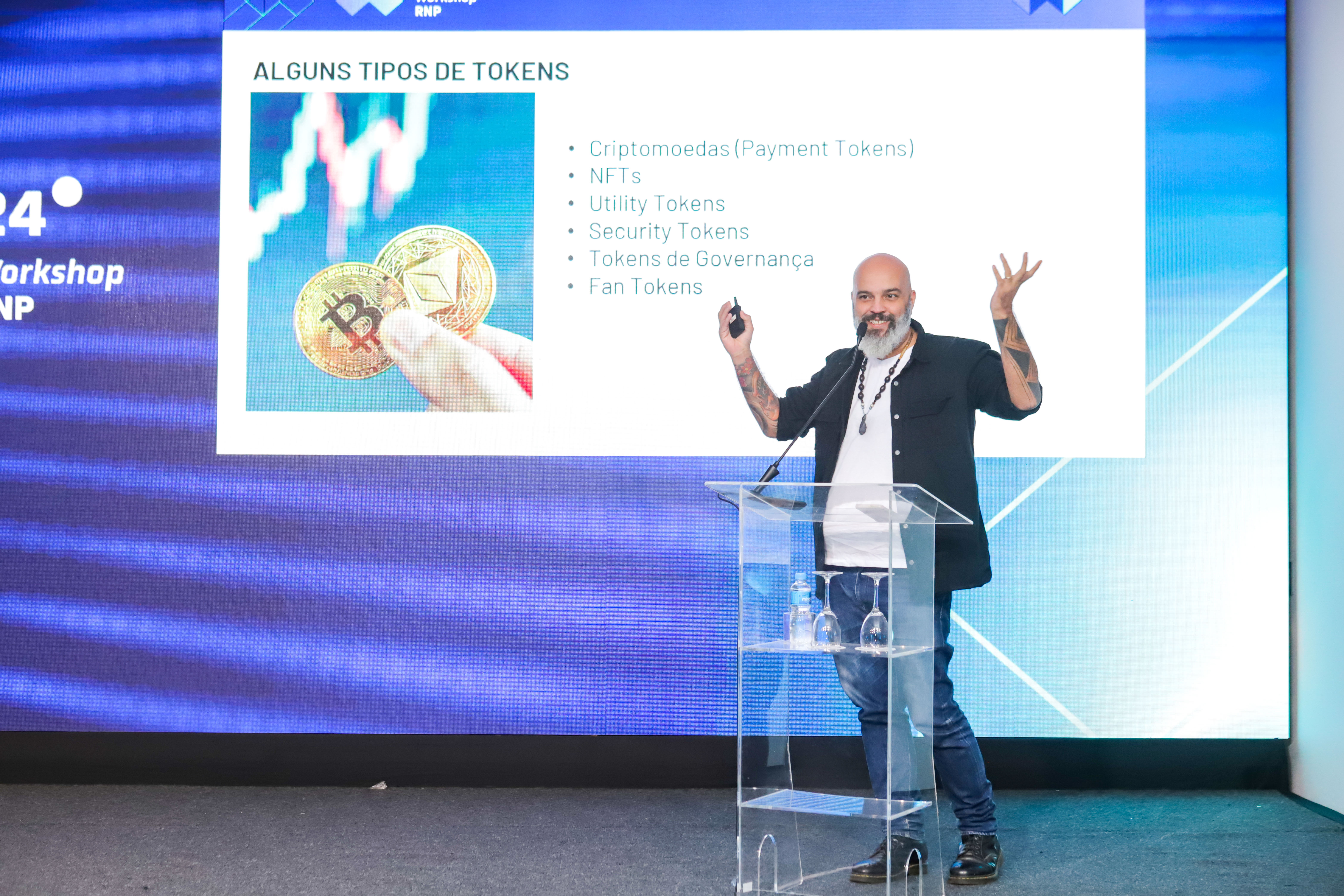WRNP promotes debate on the new generation of the internet and decentralization of services
“Our identity, which should define us in the digital world, is totally fragmented. We have several identities, logins and passwords given by institutions, but when we leave them, we lose this information. And this data is monetized by these organizations without our input”. The alert was given by the director of the Institute of Computing at the Federal University of Bahia (UFBA), Fabíola Greve, at the opening of the Decentralized and Immersive Web panel, held on the second day of the 24th WRNP.
Fabiola was the mediator of the debate, which included the participation of assistant professor at the Federal University of Goiás (UFG), Eliomar Araújo de Lima; researcher at the Center for Research and Development in Telecommunications (CPQD), Fernando Marino; the co-founder of BrasilNTF, Luciano Vassan; and entrepreneur Carl Amorim.
In the Decentralized Web, known as Web 3.0, services and contents are not under the control of entities. Hence the name decentralized. Users have more control over their personal information and greater transparency when using that data. In the current internet model, called Web 2.0, this information is managed by some technology companies.
Eliomar Araújo addressed points that need to be worked on to reach this new generation of internet. “The development of communication and computing infrastructure and the standardization of systems and components are major challenges. The user's own interest, with a focus on changing mentality, ends up being a determining factor for Web 3.0 to be effectively adopted”.
One of the pillars of this third generation of the internet is blockchain, a type of public database that is not controlled by any entity. “Blockchain allows you to be able to make direct transactions. It offers fundamental means for this decentralized universe to happen”, explained the director of the UFBA Institute of Computing.
The future is decentralized
Another point discussed was the decentralized and self-sovereign digital identity (DDI), a personal data structure that allows the storage and validation of this information. So the services can be used with just one authentication.
For Fernando Marino, the model is a great advance, since the current one with a registration per platform is not something natural. “In the digital world we are our data. And it is very worrying when we understand that this representation is not under our power. All the time we are registering, registering. This creates a wealth of data. We got used to this routine of filling out forms and registrations, but we ended up getting used to it badly”.
The panel also addressed tokenization, a technology widely used by the financial market. It consists of transforming physical assets into digital ones, a procedure that can be done for works of art, assets in companies, real estate and many others. “The token is registered within a blockchain and becomes a crypto asset. Practically anything can be transformed into a token”, said Luciano Vassan, who also recalled that technology is essential for the new generation of the internet. “The theme is fundamental for us to arrive at a Decentralized Web, something that we still don't have today”.
Carl Amorim spoke about decentralized autonomous organizations, the so-called DAOs. In this model, organizations are managed differently from the traditional way, with rules defined by an online community through a token. Anyone who acquires this token can participate in decision-making.

